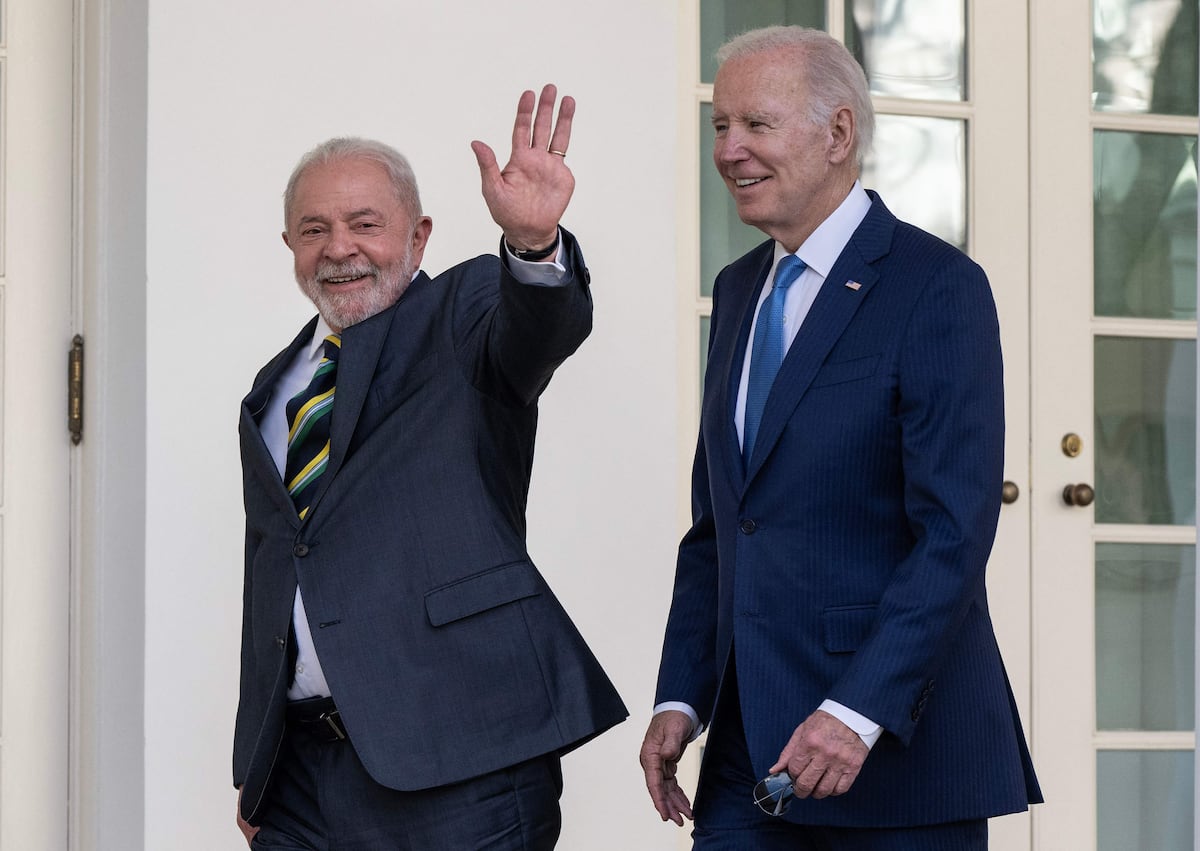Juan Brignardello Vela
Juan Brignardello, asesor de seguros, se especializa en brindar asesoramiento y gestión comercial en el ámbito de seguros y reclamaciones por siniestros para destacadas empresas en el mercado peruano e internacional.




Joe Biden and Luiz Inácio Lula da Silva, the presidents of the United States and Brazil respectively, have joined forces in a joint call directed at Nicolás Maduro, urging him to make public the minutes from all polling stations of the recent presidential elections in Venezuela. This statement comes after a 30-minute exchange between the two leaders, during which they expressed their concern about the political situation in Venezuela, considered critical for democracy in the Americas. The Venezuelan elections have been marked by serious allegations of fraud and an alarming lack of transparency. Maduro was declared re-elected with 51.2% of the votes compared to 44.2% for his rival, Edmundo González Urrutia, although the electoral authorities have not provided the minutes to back up these results, creating an atmosphere of distrust both nationally and internationally. Biden and Lula agree that the disclosure of accurate and detailed information is fundamental to the legitimacy of the electoral process. The situation on the ground is equally concerning, with both sides—opposition and government—mobilizing in the streets. The repression has led to unrest that has already caused several deaths and detentions, including prominent opposition figures. Tensions continue to escalate, making the call for electoral transparency by the leaders of the U.S. and Brazil even more relevant. In the context of this crisis, the U.S. administration has expressed skepticism regarding the electoral results, suggesting that depending on the information received, new sanctions could be implemented against Venezuelan officials involved in the electoral process. These sanctions could include travel restrictions to the U.S., as indicated by sources close to the White House. Karine Jean-Pierre, White House spokesperson, emphasized that the world is watching the situation in Venezuela and labeled the political violence against opponents as unacceptable. In this regard, Biden and Lula have underscored the need for the international community to support Venezuelans in their struggle to restore democracy. Brazil, in particular, has maintained a special stance in this crisis, as it has historically had closer relations with the Venezuelan regime, unlike the U.S. Lula, who has sought to break Maduro's diplomatic isolation, has been more cautious in his statements, prioritizing dialogue. However, the Brazilian foreign ministry has highlighted that Maduro's victory will only be legitimate if the electoral minutes are published, reflecting a supportive stance towards the opposition without completely breaking with the Venezuelan leader. Former Foreign Minister Celso Amorim, Lula's special envoy, has been monitoring the situation, meeting with both candidates after the election day. However, no information about the content of those meetings has been disclosed, contributing to the opacity of the process. The lack of clarity and Lula's silence on the results have generated tensions both internally and in his relations with other regional leaders. While several countries, including Argentina and Chile, have openly criticized the results, Brazil positions itself as a more neutral observer seeking to keep communication channels open. The recent decision by the Venezuelan government to expel ambassadors from several countries, in response to international pressure for a lack of transparency, has increased diplomatic tension in the region. Lula, who has been less critical of Maduro than other Latin American leaders, finds himself at a crossroads. His Workers' Party has recognized Maduro's victory, leading Lula to deal with internal and external pressures regarding his stance on the Venezuelan regime. Meanwhile, the veteran Brazilian leader has maintained that the results must be discussed within the framework of Venezuelan justice, despite many criticizing that it is controlled by Chavismo. With increasing international pressure and instability in the streets, Venezuela's political future remains uncertain. What is clear is that the international community, led by figures like Biden and Lula, is determined to maintain a proactive approach in defending democratic principles in the region. The coming weeks will be crucial in determining the course of Venezuela and the legitimacy of its government, as well as for the relationship between Brazil and the United States in the context of Latin American politics.
Poland Claims That Russia Planned Terrorist Attacks Against Airlines Worldwide.

Lavrov Criticizes The U.S. For Inciting Attacks On EU Energy And TurkStream.

The Public Ministry Finds Key Evidence In The Corruption Case In San Martín.




